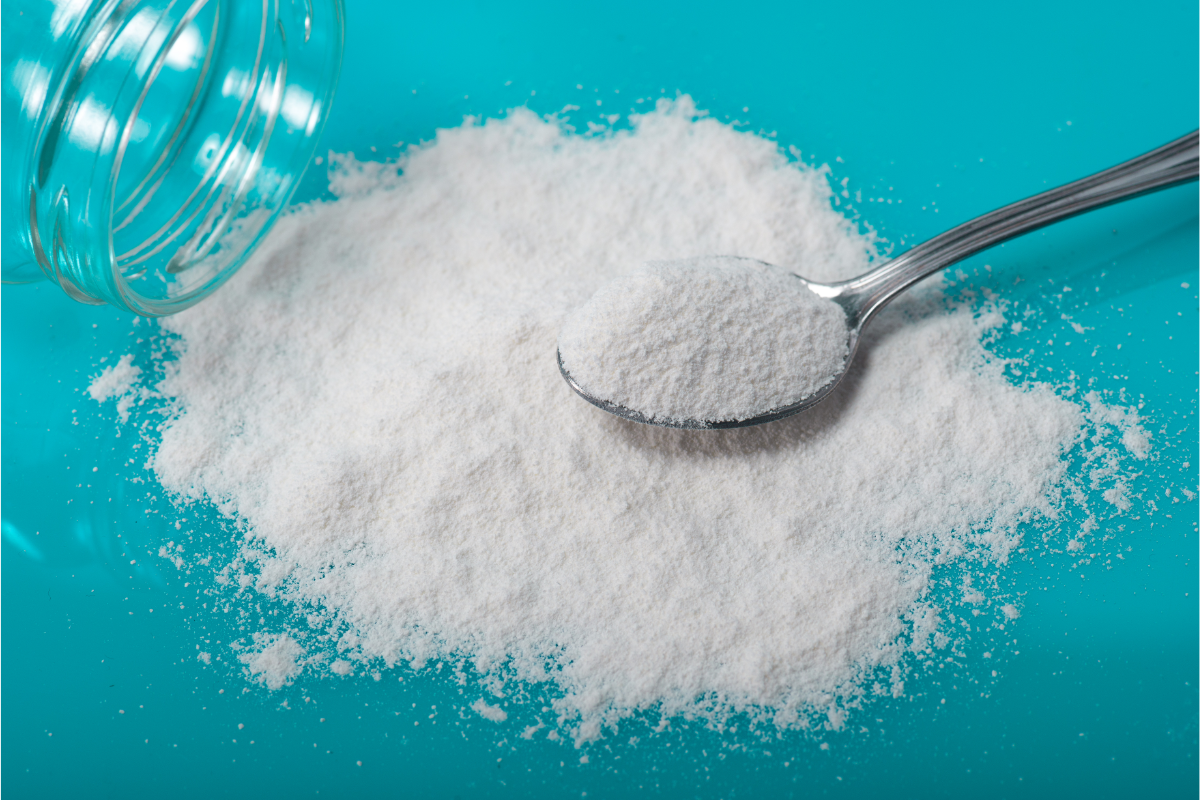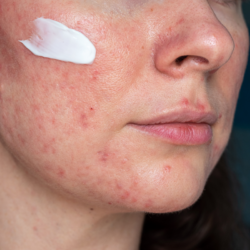Zinc is a mineral that is essential for many functions and systems in the human body. These include our immune and endocrine systems, healing and blood clotting, and taste and smell. Zinc also plays a very important role in normal development during pregnancy, childhood and adolescence.
What is zinc?
Zinc is a trace element required daily in minute doses. It is an infinitely small element in terms of its presence, but not in terms of its role. That’s why you need to get a constant supply through your diet. Zinc is essential for a number of processes in the body, including :
- Gene expression
- Healing
- Enzymatic reactions
- Protein synthesis
- DNA synthesis
- Immune system
- Growth and development
Foods that do not naturally contain zinc, such as breakfast bars and cereals or the flour used to make white bread, are often enriched with zinc.
What foods contain zinc?
Zinc is naturally present in many animal and plant foods. As a result, the vast majority of people consume zinc on a regular basis. Let’s take a look at the foods that contain the most zinc:
- Certain vegetables: mushrooms, kale, peas, asparagus and beetroot.
- Meat: beef, pork, lamb and bison
- Poultry: Turkey and chicken
- Fish: Sardines, salmon and sole
- Pulses: Chickpeas, lentils, black beans, kidney beans, etc.
- Nuts and seeds: Pumpkin seeds, cashew nuts, hemp seeds, etc.
- Dairy products: Milk, yoghurt and cheese
- Eggs
- Shellfish: Oysters, crabs, mussels, lobsters and clams.
- Whole grains: Oats, quinoa, brown rice, etc.
Is it possible to consume too much zinc?
Consuming too much zinc can lead to nausea and vomiting. It can also cause abdominal cramps, headaches and diarrhoea. Taking zinc can also interfere with other nutrients such as iron or copper.
Side effects of excess zinc
Excessive zinc consumption can cause undesirable side effects, such as :
- Nausea
- Vomiting
- Diarrhoea
- Abdominal cramps
- Headaches
- Dizziness
It’s important to talk to a healthcare professional before taking zinc supplements to avoid any risk of overdosing.
What are the signs of zinc deficiency?
Zinc deficiency can cause various symptoms, such as hair loss, skin disorders, fatigue, frequent infections, appetite problems and weight loss. However, it is important to note that these symptoms are not exclusively linked to zinc deficiency and can also be caused by other health conditions. It is therefore advisable to consult a healthcare professional for a precise diagnosis if these symptoms are present.
What are the benefits of zinc?
Studies have shown that it has beneficial effects on :
- The common cold. In fact, studies suggest that if zinc is taken within 24 hours of the onset of symptoms, it is able to shorten their duration. Nevertheless, intranasal use of zinc can lead to a loss of smell, in some cases on a long-term or permanent basis.
- Wound healing. In the case of people suffering from skin ulcers and with fairly low blood levels, taking zinc may be beneficial.
- Diarrhoea. In malnourished children with low zinc levels, food supplements can reduce the intensity of diarrhoea symptoms.
- Age-related macular degeneration. Studies suggest that when taken orally, zinc may be able to delay the development of AMD.
Dosage
Given that the recommended daily intake is 11 mg for adult men and 8 mg for adult women, it is important not to take a dietary supplement with too high a dose. Unless recommended by a health professional.
Pregnant and breast-feeding women should consume 11 and 12 mg respectively per day . Unless a health problem prevents its absorption, you should easily obtain a sufficient intake of zinc through diet alone . If you wish to take dietary supplements, prefer absorbable forms such as zinc citrate or zinc gluconate.
The latest studies on zinc
Scientific research is constantly evolving, providing new insights into the essential elements of our diet. Among these, zinc stands out for its crucial role in supporting our biological and immune functions. Two recent studies highlight the importance of this trace element and suggest new implications for our health.
Regulation of immune cell signalling :
- A recent review highlights the importance of zinc as an essential micronutrient in many biological processes. An imbalance in zinc homeostasis can impair overall immune function and increase susceptibility to infection. Zinc acts not only as an essential cofactor for thousands of proteins but also as an intracellular messenger in signalling pathways, similar to the role of calcium, thus influencing immune responses. (6)
Reduced mortality in patients with COVID-19 :
- A 2023 meta-analysis examined the association between zinc supplementation and mortality among patients infected with COVID-19. This study concluded that individuals treated with zinc supplements had a reduced risk of mortality compared with those who did not receive zinc supplements. However, zinc supplementation showed no significant difference in the symptoms of COVID-19. These results indicate that zinc may be a cost-effective preventive method to reduce poor outcomes in patients with COVID-19. (7)
These recent studies, published after 2021, reinforce our understanding of the importance of zinc and pave the way for new recommendations for its use in disease prevention and treatment. They remind us of the importance of maintaining a balanced diet and, if necessary, considering zinc supplementation under medical supervision to support our general well-being.
Treating rosacea with zinc
Rosacea is a chronic inflammatory skin condition that affects many people around the world. Identifying treatments that are both effective and free from severe side effects is a major challenge. Zinc, known for its beneficial properties for the skin, is being studied for its therapeutic potential in this area.
A randomised, double-blind study investigated the use of zinc sulphate in patients suffering from rosacea. The results were encouraging, showing a significant improvement in symptoms in patients treated with zinc compared with those receiving a placebo. More importantly, the treatment was well tolerated, with minimal side effects reported. (8)
Before considering zinc as a treatment option, it is essential to consult a dermatologist for a tailored, personalised approach. To find out more about this study and explore the role of zinc in skin health, visit our dedicated section.
The promising results of this study reinforce the potential role of this trace element in the management of rosacea, opening up a new avenue for those seeking alternatives to conventional treatments.
FAQ
- What is the role of zinc in the human body?
Zinc is an essential chemical element for the growth and development of cells in the human body. It plays an important role in immune function, wound healing, DNA synthesis, skin health and cell growth and development.
- What foods are rich in zinc?
These include oysters, red meat, pumpkin seeds, cashew nuts and beans.
- How can I tell if I’m lacking zinc in my diet?
Signs of deficiency include hair loss, skin disorders, fatigue, frequent infections, appetite problems and weight loss. However, it is important to note that these symptoms are not exclusively linked to zinc deficiency and can also be caused by other health conditions.
- What are the risks of excessive zinc consumption?
Excessive consumption can cause undesirable side effects, such as nausea, vomiting, diarrhoea, abdominal cramps, headaches and dizziness. It is important to talk to a health professional before taking supplements to avoid any risk of overdose.
- Can zinc help treat acne?
Zinc is known to help maintain skin health and can help reduce inflammation and acne. However, it is important to discuss with a healthcare professional before taking zinc supplements to treat acne.
Sources:
- https://www.ncbi.nlm.nih.gov/pmc/articles/PMC3724376/
- https://www.ncbi.nlm.nih.gov/pmc/articles/PMC2820120/
- https://pubmed.ncbi.nlm.nih.gov/16632171/
- https://www.ncbi.nlm.nih.gov/pmc/articles/PMC3636409/
- https://pubmed.ncbi.nlm.nih.gov/33986184/
- https://pubmed.ncbi.nlm.nih.gov/37435275/
- https://pubmed.ncbi.nlm.nih.gov/16863527/







